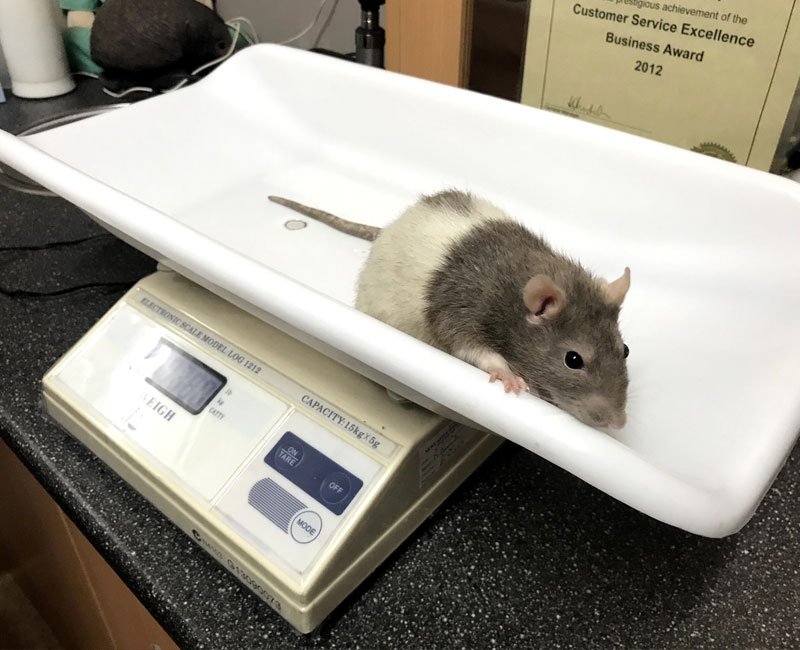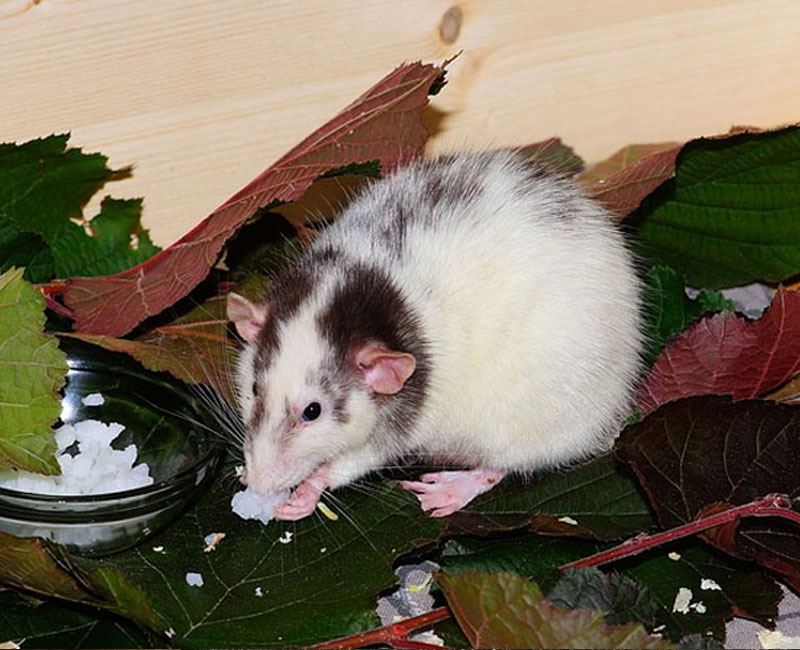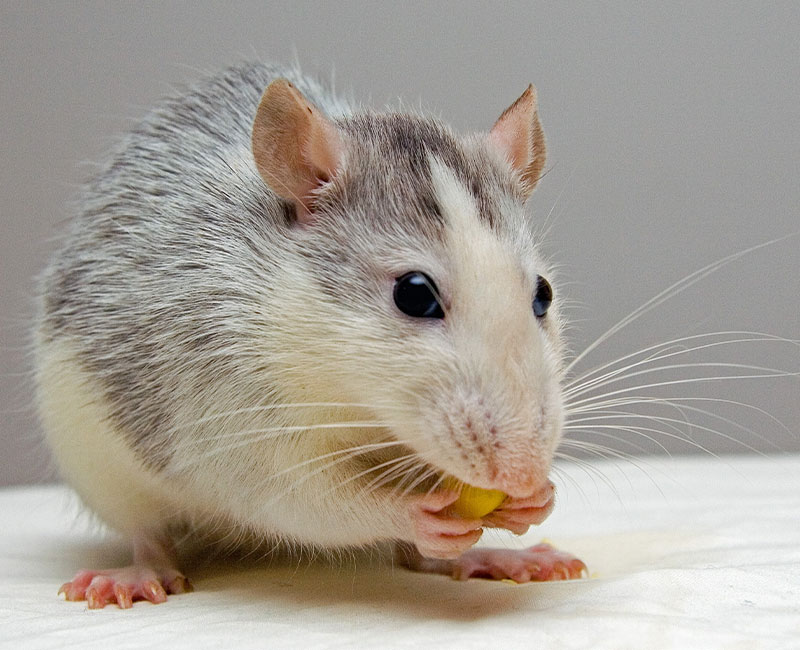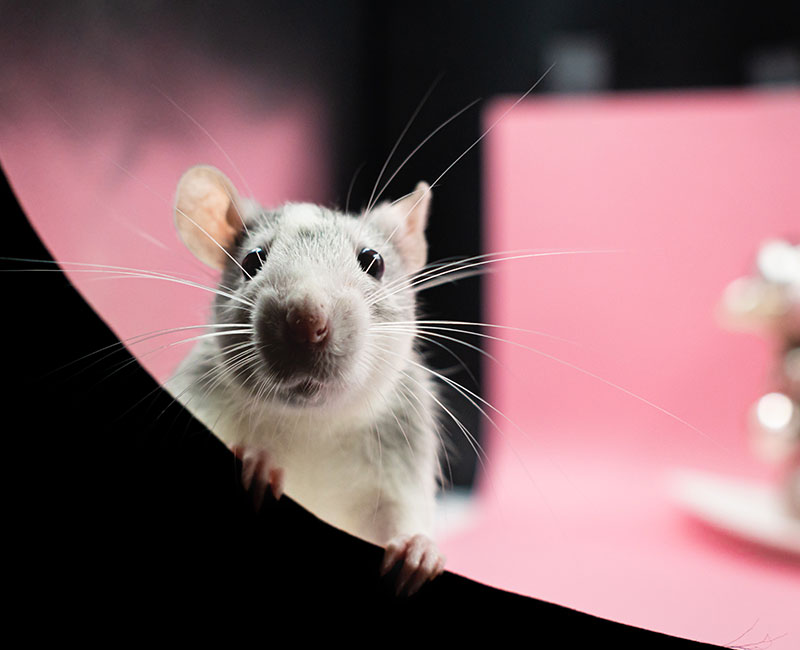General Health Care for Pet Rats
Health tips and advice for your tiny friends

Caring For Your Pet Rat
Tamed rats are generally friendly and can be taught to perform selected behaviours, like using a litter tray. Rats love interacting with their owners, but you need to gain their trust first. When you get a new rat, first let it get used to its cage and new environment, before offering it some snacks to gain its trust. Once the rat gets more confident with you, try to pick it up gently using both hands. This will be the beginning of a great friendship.
The normal lifespan of rats ranges from two to five years and is typically three years.

Rats Diet
You can feed your rat small amounts of fruits and vegetables, whole grain pasta and bread, brown rice, yogurt, and occasionally low fat cooked meat, mealworms, cheese, seeds and nuts. In addition, treats such as dog biscuits can be given. It is important to keep rats on a high fibre and low fat diet though, so limit higher fat foods such as cheese, seeds, and nuts.
Pelleted or block type diets are available for rats and are formulated to be nutritionally complete. Choose a rat block that is low in fat and calories, and has soy meal high on the ingredient list rather than corn. Rats have a bit of a sweet tooth but resist the temptation to feed sugary foods or junk food, including chocolate.
Avoid feeding any of these items to pet rats: chocolate, raw beans, raw sweet potato, cabbage, brussel sprouts, green potatoes, sweet sugary treats, any other “junk food”, caffeinated beverages or carbonated drinks.

Parasites

Mites
The rat fur mite Radfordia enrifera causes pruritus leading to self-trauma. Ulcerative and crusting lesion usually affect the head and shoulders. Pruritic warty papules with crusts on ears, nose and tail are usually caused by the burrowing mite Notoedres muris. The tropical rat mite Ornithonyssus bacoti, causes nonspecific dermatitis in rats as they suck blood. They can also bite humans.

Lice and Fleas

Tapeworm

Pinworm

Roundworm

Bladder threadworm (nematodiasis)
This is a common urinary disease in rat colonies. This occurs when the nematode parasite Trichosomoides crassicauda infects the rat’s urinary bladder, causing painful urination, stunted development, and stones in the bladder (bladder calculi). Kidney diseases and stones in the kidney may also occur if the parasite moves upward toward the kidneys.

Rat Lungworm
Rat lungworm or Angiostrongylus cantonensis is a parasite that mainly lives in rodents such as rats and can infect snails and slugs that come into contact with infected rat faeces. Rat lungworm made headlines after it infected two people in China who ate raw centipedes, but people might catch it by eating snails on vegetables out of home gardens. It causes meningitis in humans.

Other Skin Infections

Bacterial Skin Infections

Fungal Disease (Ringworm)

Ulcerative pododermatitis

Ringtail
If you have any questions or concerns about your pet rats health, please getin touch with our friendly team.
Rat owners from all over Fremantle, Hilton, Hamilton Hill, O’Connor, White Gum Valley, Beaconsfield, Willagee, Samson, Coolbellup, Kardinya, Spearwood and Coogee have been coming to Hilton Vet Hospital for more than 30 years to receive exceptional service and care for their pets.
